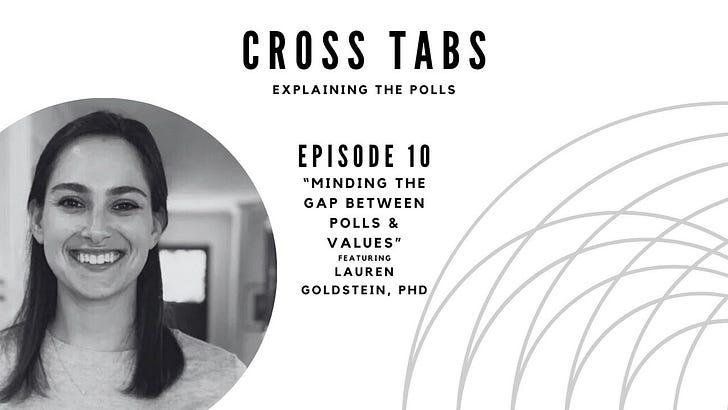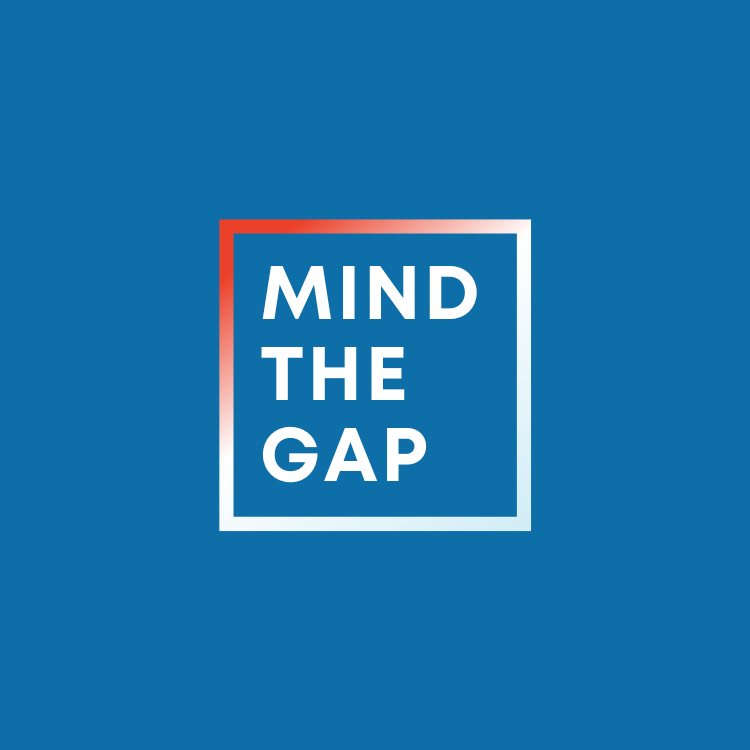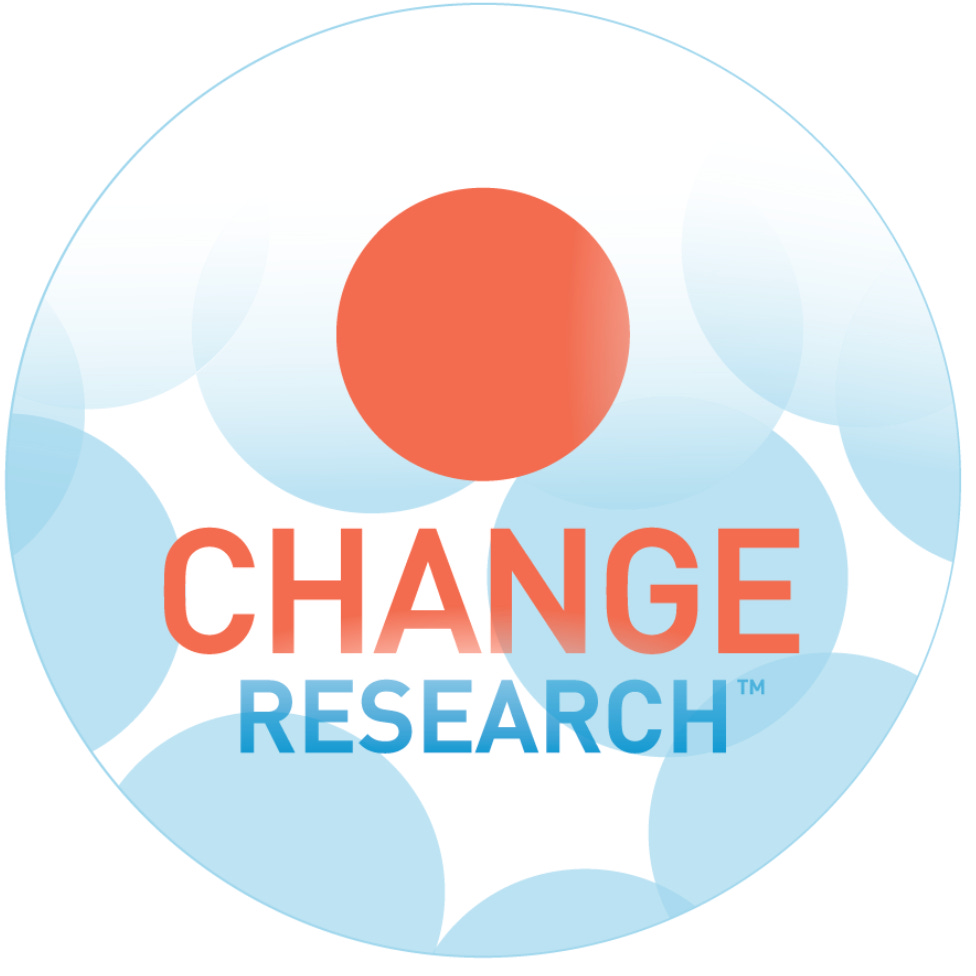The Gap Between What People Mean and What We Ask
Lauren Goldstein on how abortion - like many issues - really isn't polarizing.
Polling reveals most Americans support abortion access in almost every circumstance, even when they identify as "pro-life." Looking beneath surface-level survey questions shows that when people are asked about specific situations rather than abstract labels, 80% believe abortion should be legal, and even self-described pro-life voters support legal abortion in most medical circumstances or cases of rape or other sexual violence.
In this conversation with Lauren Goldstein from Change Research, we take a deeper look at how political polling too often misses the deeper values that drive voter opinion.
Why do pollsters so often “get it wrong”? I suspect a big part of this is that many pollsters have backed themselves into a cost corner. “Gold standard” sample methods become expensive, and incentivize the use of panels. Over time, respondents asked the same questions over and over may start to, in essence, care less about what answer they give. These surveys and sample methods are expensive to field - especially when you’re doing them weekly - and open-ended questions take longer to code than structured responses (and the more time you spend coding the open ends, the more those questions “cost”).
But there is another kind of cost to this approach - every time you design a survey, you are influencing the kinds of responses people can give you. This is just as true with live interviews as with online surveys, in my opinion (the interviewer will fit your response to the selections available, even if you explained why you selected it to the interviewer, which you’re not really encouraged to do. And even if you do give one, your explanation doesn’t get coded). So if you have a mental model of how opinions are ordered, and you have a way of talking about those opinions, those prior beliefs can be baked right into the survey design. The people designing these surveys often have advanced degrees in political science, political psychology, sociology, and the like. They are doing their best, but it’s going to be tempting to put words in regular people’s mouths - words they would never use.
There is a solution, however. Qualitative research before and after quantitative research, and open-ended questions incorporated into shorter surveys can help survey designers frame the issues in voters’ own language, rather than academic or frankly partisan language.
There’s a reason this matters. Lauren’s expertise is in “symbolic politics” — the emotional frameworks and values that shape political identity, and inform how people respond to questions that are evoke those symbols or trigger partisan identities. When we dig deeper to understand the underlying values frameworks people use to make sense of politics, it opens up space for more effective political communication, and helps researchers and strategists uncover surprising consensus on seemingly divisive issues.
“When you give people a question like, are you pro-choice or pro-life? you're inviting people to sort themselves by labels, by symbolic political terms and values.” — Lauren Goldstein
You can get the episode on Apple Podcasts here:
Want to be a part of the future of Cross Tabs Podcast? Here are a few simple ways to get involved:
Subscribe, rate, and review Cross Tabs Podcast on your favorite podcast app
Subscribe to Cross Tabs Podcast Substack and suggest Cross Tabs to your audience if you have your own Substack - we’re happy to do the same!
Contact Farrah with guest or topic suggestions you’d like to hear about on the show
Resources
Lauren Goldstein's personal newsletter described as a "myth busting passion project" that provides deeper context about public opinion and how voters think. Get it here:
'Actually, Abortion Isn't Polarizing'
Article analyzing polling data showing that while Americans appear divided when asked simply about pro-choice/pro-life labels (54%/41%), deeper questioning reveals 80% support legal abortion in most circumstances.
Polling organization that differentiates itself through innovative sampling (recruiting fresh samples rather than using panels) and by treating polling as a "listening tool" that goes beyond surface-level questions.
You can follow their work via their newsletter here:
'Where Do Americans Stand on Abortion?'
Gallup poll cited in the transcript showing that 54% of Americans identify as pro-choice and 41% as pro-life when presented with these binary labels.
Seminal research from the 1950s establishing foundational concepts about how partisanship operates as a social identity rather than a collection of policy preferences.
Symbolic politics theory research
Academic framework that views political attitudes and behaviors as rooted in symbols, emotions, and values rather than rational calculations, which Goldstein studied as a political psychologist.
Our Guest
Lauren Goldstein is the lead advocacy pollster for Change Research and holds a PhD from UCLA with ten years of experience as a public opinion researcher and social scientist. She has done extensive research and polling on issues related to racial justice (and injustice), criminal legal reform and police divestment, immigration, and reproductive rights.
Your Host
Farrah Bostic is the founder of The Difference Engine, a strategic research and innovation consultancy. Drawing on her extensive background in research and strategy, she examines how power dynamics and data patterns shape both democratic institutions and market environments, bringing a sharp analytical perspective to the intersection of politics, data, and business.
Her incisive questioning style and ability to connect political movements with business implications makes Cross Tabs essential listening for political analysts, business leaders, and engaged citizens seeking to understand the forces shaping our political and economic landscapes.
Learn more about Farrah’s experience helping B2B and B2C companies across various industries turn audience insights into effective strategies at thedifferenceengine.co, and be sure to connect with her on LinkedIn if you’d like to discuss how The Difference Engine can help your business grow with authentic customer insights.
Subscribe to Cross Tabs
Don't miss an episode! Subscribe to Cross Tabs on your favorite podcast platform:






